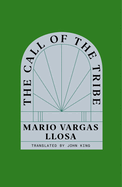
Nobel Laureate Mario Vargas Llosa (Harsh Times; The Discreet Hero; The Dream of the Celt) offers a full-throated defense of liberalism--the political philosophy predicated upon the rights of the individual--in his essay collection The Call of the Tribe, translated from the Spanish by John King. The "spirit of the tribe" is the term that philosopher Karl Popper used to describe what Vargas Llosa calls "the irrationality of the primitive human being" who yearns to be subordinate. Instead, liberalism is about the primacy of the individual over the collective, an ethos Vargas Llosa espouses. In this collection of eight essays, he offers a defense of this standpoint and celebrates the works of seven intellectuals, all of them men, who shaped his beliefs.
In addition to Popper, Vargas Llosa considers Adam Smith's book The Wealth of Nations and identifies egotism as "the motor of progress"; José Ortega y Gasset, who lambasted the masses for "abdicating their sovereign individuality"; Friedrich August von Hayek, who believed "only individualism, private property, and market capitalism guarantee political freedom"; Raymond Aron, self-described "incorrigible liberal"; Isaiah Berlin and the concept he called "contradictory truths"; and "thoughtful and iconoclastic" Jean-François Revel. Even audiences who read Vargas Llosa's claim that the free market "is what brings material development and progress" and would respectfully counter that it can also be capricious in reversing those gains would have to concede that he cogently argues and vigorously defends his positions. The essays may not persuade, but they're beautifully written; these are intelligent, demanding pieces from a writer always worth reading. --Michael Magras, freelance book reviewer

